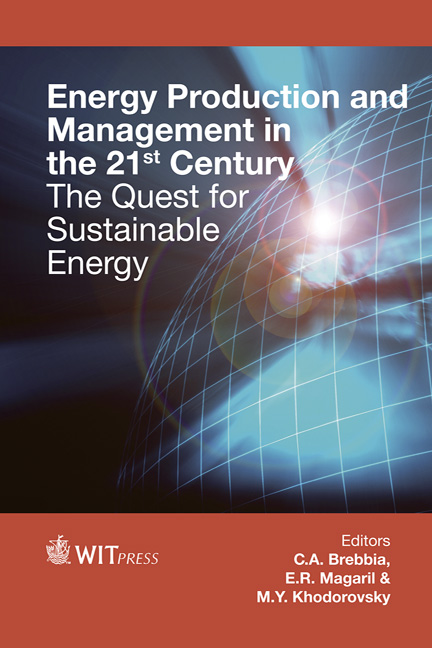The Assessment Of Exhaust System Energy Losses Based On The Measurements Performed Under Actual Traffic Conditions
Price
Free (open access)
Transaction
Volume
190
Pages
10
Page Range
369 - 378
Published
2014
Size
1204 kb
Paper DOI
10.2495/EQ140361
Copyright
WIT Press
Author(s)
P. Fuc, J. Merkisz, P. Lijewski, A. Merkisz-Guranowska & A. Ziolkowski
Abstract
It is generally acknowledged that energy losses from the exhaust system are approximately 30% of the total losses of energy supplied to the engine in the form of fuel. Part of this energy is used to heat the aftertreatment systems whose pollutant conversion rate is tightly related to their operating temperature. The exhaust gas flowing through the catalytic supports of the converters and filters warms them up while the outstanding energy contained in the gases is lost permanently. Hence, it is vital to recuperate the waste energy and convert it into different forms such as electrical energy using thermoelectric modules. In this paper, we determined the energy loss in an exhaust system of a city bus following the measurements carried out under actual traffic conditions on a regular bus route. The measurements of the exhaust gas temperature and mass flow were performed at three points. For this, thermoresistors and a portable exhaust emission analyzer SEMTECH DS (designed for exhaust emission testing under actual traffic conditions) were used. Based on the measured exhaust emission of CO2, CO and THC we determined the vehicle gas mileage. From the vehicle diagnostic system, we pulled basic data of the engine operation and based on this, the amount of energy supplied to the engine and the losses through the exhaust system throughout the entire test run of the bus were determined. Keywords: energy losses, actual traffic conditions.
Keywords
energy losses, actual traffic conditions.





